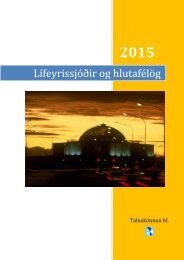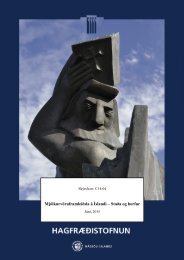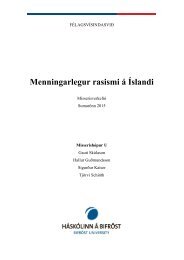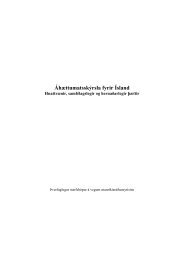Create successful ePaper yourself
Turn your PDF publications into a flip-book with our unique Google optimized e-Paper software.
WORLD REPORT 2016<br />
HUMAN RIGHTS WATCH<br />
• Ecuadoran President Rafael Correa gave his government the power to dissolve<br />
groups that “compromise public peace.” It then used this power to<br />
shut down an environmental group challenging oil drilling in the ecologically<br />
sensitive Amazon.<br />
• Bolivian President Evo Morales has signed a law and issued a decree in<br />
2013 granting his government the power to dissolve any civil society organization<br />
whose legal representative is criminally sanctioned for carrying out<br />
activities that “undermine security or public order.”<br />
As Western governments intensify their efforts to stop terrorism, others have become<br />
adept at using vague language about terrorism to deflect criticism of their<br />
crackdown on civil society.<br />
• Egyptian President Abdel Fattah al-Sisi said that crushing the Muslim Brotherhood<br />
and the threat it once posed to him at the ballot box is really about<br />
fighting terrorism. His ploy is backed with billions of dollars from the Gulf<br />
monarchs, who are terrified by a movement that combines the political<br />
Islam they claim to uphold with the electoral means they find anathema.<br />
• Kenya included two human rights groups on a list of suspected supporters<br />
of terrorism. The two organizations documented abuses by security forces<br />
during counterterrorism operations. The organizations had to go to court for<br />
a judge to clear them of any links to terrorism and unfreeze their bank accounts.<br />
• A draft Chinese law defines terrorism to include “thought, speech, or behavior”<br />
that attempt to “influence national policy-making.” It also includes<br />
a catch-all prohibition of “other terrorist activities” that could be used to<br />
deem any activity a terrorist offense.<br />
• A counterterrorism bill under consideration in Brazil contains overbroad<br />
and vague language that criminalizes “advocating terrorism” without any<br />
explanation of what that entails. Another provision could be interpreted to<br />
allow the prosecution as terrorists of protesters for “taking over” roads and<br />
buildings.<br />
Behind these efforts to restrict civic groups to government views of the public<br />
good is a misconception of the role of civil society. In a rights-respecting society,<br />
people should be free to band together to pursue their own conception of the<br />
public good, subject only to limitations preventing direct harm to others. Many<br />
of these goals will differ from a government’s; indeed, that is the idea. A government<br />
is most likely to meet the needs of its people if they are free to debate what<br />
those needs are and how best to pursue them. People joining together to advance<br />
their points of view, in whatever variations and permutations, is an essential<br />
part of the process.<br />
When governments use vague laws about the public good or the national interest<br />
to constrain civil society, they restrict the scope of public debate—both<br />
through their own censorship and the self-censorship of groups struggling to understand<br />
what statements or activities are allowed. That not only violates the<br />
rights of those who want to join with others to make their voices heard. It also results<br />
in a government that is less likely to serve its people and more likely to<br />
serve the private interests of its leaders and their most powerful allies.<br />
Convenient Homophobia<br />
An increasingly popular method to crack down on civil society is to target organizations<br />
of lesbian, gay, bisexual, and transgender (LGBT) people or those that<br />
advocate on their behalf. Some repressive governments claim, much like their<br />
calls to limit the right to seek foreign funding, that LGBT people are alien to their<br />
culture, an imposition from the West. But no Western country is “exporting” gays<br />
or lesbians; they have always been in every country, with their visibility largely a<br />
product of the extent of local repression. The only imposition going on is the<br />
local government imposing dominant views about gender and sexuality on a vulnerable<br />
minority.<br />
Like broader attacks on civil society, attacks on LGBT groups tend to be most intense<br />
when governments are most intent on changing the subject. Some of the<br />
world’s most vocal leaders on repressive LGBT legislation—Russia’s Vladimir<br />
Putin, Uganda’s Yoweri Museveni, Nigeria’s former President Goodluck Jonathan,<br />
and Gambia’s Yahya Jammeh—tend to be under political pressure for failures of<br />
governance. Portraying themselves as guardians of “traditional values” against<br />
gays is a convenient way to avoid discussion of their own mismanagement. But<br />
because that ploy is unlikely to work indefinitely, official homophobia is often a<br />
prelude to a broader crackdown on civil society, the proverbial canary in the coal<br />
mine.<br />
18<br />
19










